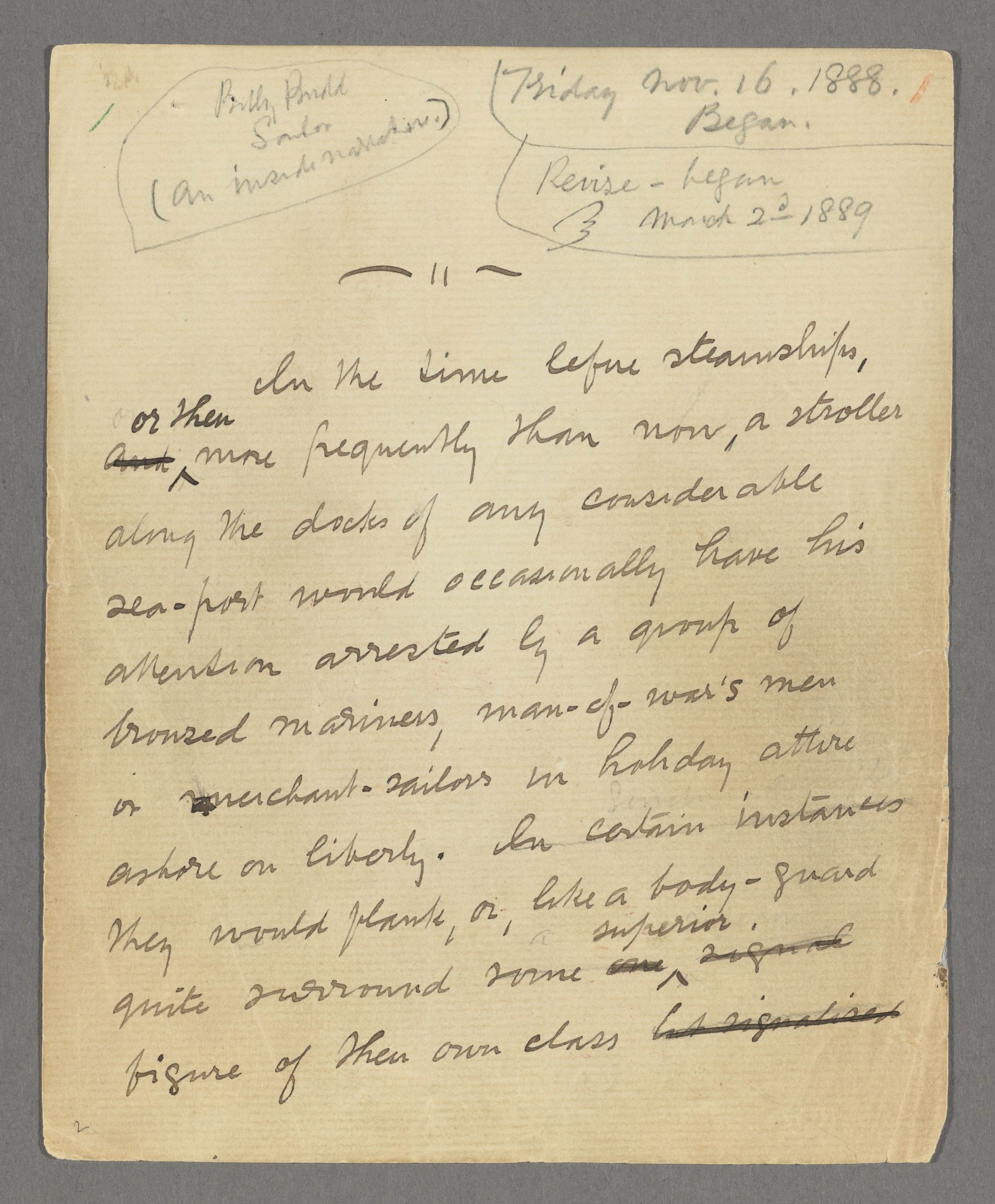Mission Flats at the beach in Greece. Thank you, Sia Kouma.
Whose voice does the reader hear?
I don’t believe that poems are written to be heard, or as Mill said, to be overheard; nor are poems addressed to their reader. I believe that poems are a score for performance by the reader, and that you become the speaking voice. You don’t read or overhear the voice in the poem, you are the voice in the poem. You stand behind the words and speak them as your own — so that it is a very different form of reading from what you might do in a novel where a character is telling the story, where the speaking voice is usurped by a fictional person to whom you listen as the novel unfolds.
Billy Budd manuscript
Melville’s original handwritten manuscript of Billy Budd (via). (Click image to view full size.)
Orwell

Colorized by Edvos. Date and photographer unknown. (Via Colorized History.)
Flickr Find of the Day

The Back Bay in progress. Commonwealth Avenue in Boston, looking west toward the intersection of Dartmouth Street, ca. 1872. The photo seems to have been taken from the tower of the First Baptist Church, on the corner of Clarendon Street. From the wonderful Flickr stream of the Boston Public Library.
South End, June 10: Last appearance for the summer
Boston rapid transit map, 1954
Click image to view full size. Via Cartographia.
The Artist in the Arena
Brené Brown on dealing with critics real and imagined. Helpful advice for creatives of all kinds, writers included. Of course, the Teddy Roosevelt quote that was so meaningful to Brown, about “the man in the arena,” is one that every writer should keep close by, for those low moments.
It is not the critic who counts; not the man who points out how the strong man stumbles, or where the doer of deeds could have done them better. The credit belongs to the man who is actually in the arena, whose face is marred by dust and sweat and blood; who strives valiantly; who errs, who comes short again and again, because there is no effort without error and shortcoming; but who does actually strive to do the deeds; who knows great enthusiasms, the great devotions; who spends himself in a worthy cause; who at the best knows in the end the triumph of high achievement, and who at the worst, if he fails, at least fails while daring greatly, so that his place shall never be with those cold and timid souls who neither know victory nor defeat.



